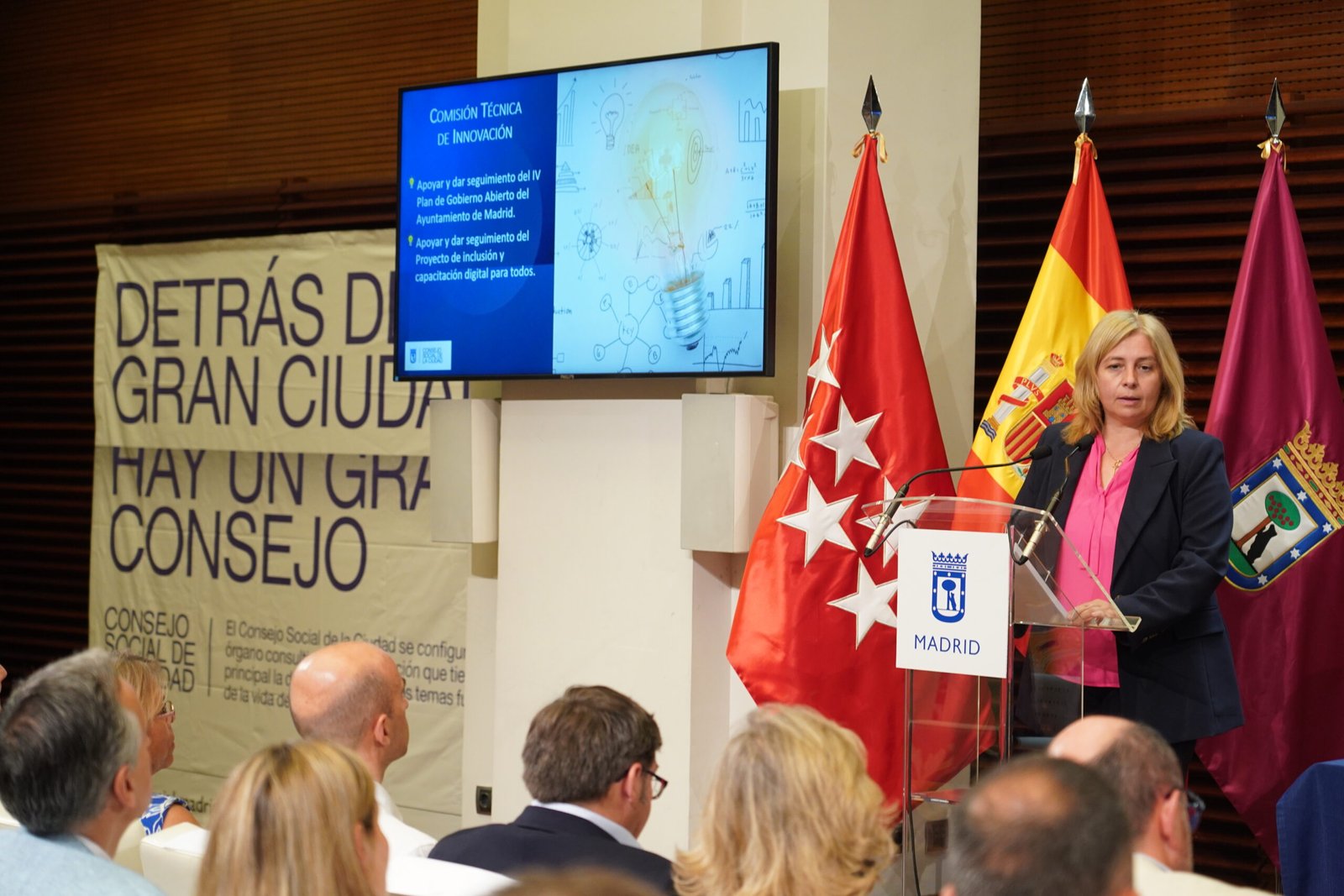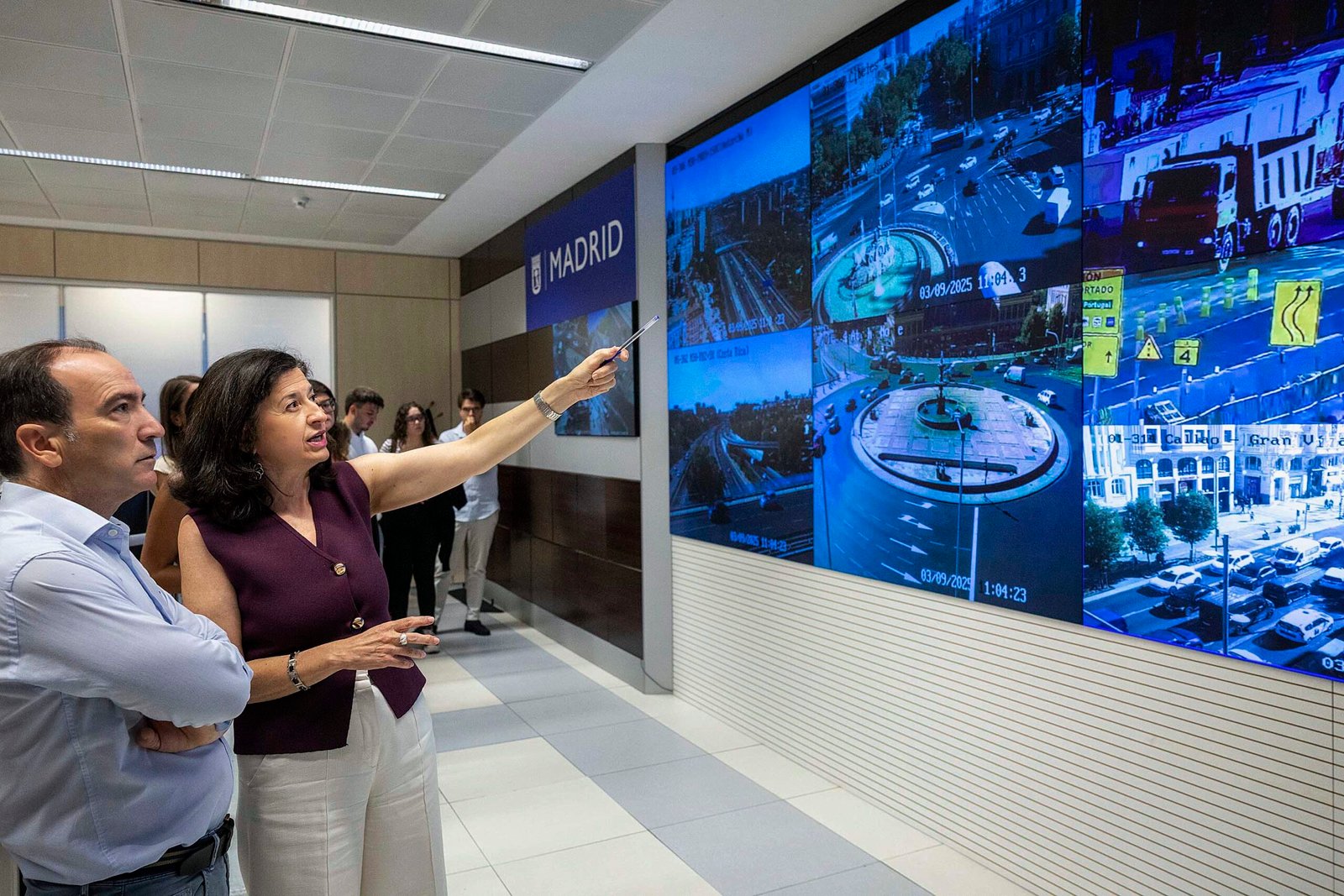The Social Council of the City, the highest consultative and citizen participation body in Madrid, held this afternoon the plenary session corresponding to 2025. The Vice Mayor of Madrid and delegate for Security and Emergencies, Inma Sanz, presided over this session at the Palacio de Cibeles, attended by representatives of the municipal administration (government areas, districts, and political groups) and the most representative economic, social, professional, and neighborhood organizations in the city (professional associations, universities, citizen entities, and business and union organizations).
The plenary session was attended by the delegates of Economy, Innovation, and Finance, Engracia Hidalgo; of Social Policies, Family and Equality, José Fernández, and of Housing, Álvaro González, along with representatives of various civil society institutions that are part of the Social Council.
The session began with the official creation of the new Housing Technical Commission, which joins the other five commissions (Urban Planning, Environment and Mobility, Economy, Innovation, and Social Services) with the aim of addressing housing policies as a specific and cross-cutting area.
The Vice Mayor thanked the representatives of the entities that are part of the Social Council for their work over the past year and «the great activity of the technical commissions, which have met 21 times.» As a result of this work, Sanz highlighted that «today six agreements on matters of interest to the people of Madrid are being presented to this Council,» in the areas of social innovation, urban planning, environment and mobility, and economy.
Six agreements from the technical commissions
The Vice Mayor announced the two agreements from the Innovation Technical Commission that were approved in this session. The first is to support and follow up on the IV Open Government Plan of the Madrid City Council, which includes five medium-term initiatives or commitments related to clear communication; the launch of the Youth Digital Participation Space (POV Madrid); the development of the municipal Social Innovation Laboratory (THIVIC); the promotion of new strategies to prevent unwanted loneliness in the youth population and the evaluation of the municipal strategy for universal accessibility. The second agreement promoted by the Innovation Commission is related to the project ‘Inclusion and digital training for all,’ coordinated by the municipal digital office, with the collaboration of different areas and aims to provide citizens and municipal employees with the skills, knowledge, and aptitudes necessary to develop as digital citizens in various areas of life and work.
The Urban Planning Technical Commission, on the other hand, has proposed two agreements for the Council’s consideration. On one hand, to support the development of the new Urban Strategy with which the City Council will address the main challenges facing cities today and in the near future: housing, urban transformation, and sustainability. This strategy will have a Municipal Strategic Plan, resulting from the participation of all social and professional sectors in the city, which will allow for a new adaptive urban planning for Madrid that responds quickly to social, economic, and environmental changes.
The second agreement of this commission refers to the process of automating urban planning permits, with BIM (Building Information Modeling) methodology, which will facilitate early confirmation of regulatory compliance through automated processes and will materialize in the future MADRIDdbp platform, which will allow for the automated validation of urban parameters of 3D digital building models.
Furthermore, at the request of the Environment and Mobility Commission, the Social Council was informed about the 2030 Domestic and Commercial Waste Prevention and Management Strategy of the City of Madrid, whose main purpose is the transformation of waste management, applying the principles of the circular economy and their hierarchy. This strategy fundamentally focuses on prevention, separate collection, preparation for reuse and recycling, and waste reduction, in line with the achievement of community waste management objectives.
Finally, the Economy Technical Commission presented an agreement to support the Employment Strategy of the Employment Agency of the City of Madrid and, specifically, the four high-quality municipal schools that are part of it, along with the Center for Professional Guidance Specialization (CEOP), the ‘Path to Employment’ program, the ‘Talent & Companies’ space, the integrated digital employment services platform, and the new mentoring call.
An open and responsible dialogue
The Social Council, coordinated from the Vice Mayor, Spokesperson, Security, and Emergencies Area, aims to promote an open, transparent, and responsible dialogue on the city model for strategic planning in various areas. It carries out its work through technical commissions and working groups, with the preparation of reports, studies, and proposals on local, economic, and social development, municipal strategic planning, and major urban projects. In addition, experts can attend plenary and technical commission sessions as guests. /



